20 Apr 2017 | Bahrain, Bahrain Statements, Campaigns, Campaigns -- Featured, Middle East and North Africa, Statements
[vc_row][vc_column][vc_column_text]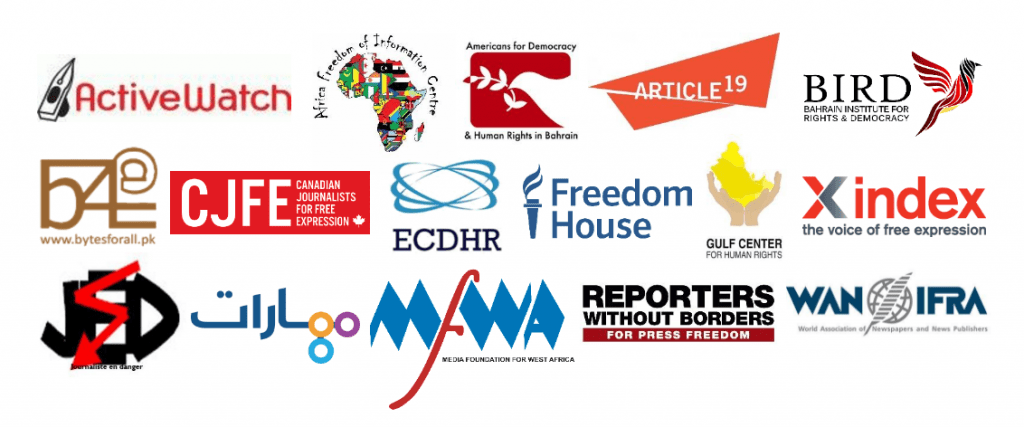
To: Sheikh Hamad bin Isa Al Khalifa
King of Bahrain
CC: Hon. Zeid Ra’ad Zeid al-Hussein
High Commissioner for Human Rights
Ms. Frederica Mogherini
High Representative of the European Union for Foreign Affairs and Security Policy
Mr. Sigmar Gabriel
Vice-Chancellor and Foreign Minister of the Federal Republic of Germany
Mr. Rex W. Tillerson
United States Secretary of State
The Right Honorable Boris Johnson
Foreign & Commonwealth Office of the United Kingdom
Mr. Jean-Marc Ayrault
Minister of Foreign Affairs of France
King Hamad,
We, the undersigned, express our deep concern with the government of Bahrain’s continued targeting of journalists, which further restricts free press and expression in the country. On 23 April 2017, the court of appeals will hold another hearing for Sayed Ahmed Salman al-Mousawi, an internationally-renowned photographer, after he was arrested more than three years ago for alleged terrorist activities. The government’s repeated harassment of al-Mousawi and other journalists highlight the ongoing censorship and restrictions on free press and expression in Bahrain.
Sayed Ahmed Salman al-Mousawi is a 29-year-old freelance photographer who has won 169 international photography prizes—a number of which he even won while in detention. He is a member of FIAP, PSA, UPI and Qatif photos.
Authorities arrested al-Mousawi, along with his brother Sayed Mohammed, on 10 February 2014 from their home in Duraz. The plain-clothes masked policemen did not present any arrest warrant and confiscated his cameras and electronic devices. After holding al-Mousawi for six days, officials transferred him to Dry Dock prison. Security forces then took him to the Criminal Investigations Directorate (CID) for another six days where they tortured him “cruelly without mercy,” as he later told his father. Security officers hung him on a door four times, electrocuted him, and did not allow him to sit for four days. They stripped him naked, beat him and sexually assaulted him. No independent investigation into his torture allegations has ever been conducted.
Al-Mousawi spent over nine months in detention without official charges against him. At his first trial on 24 December 2014, the prosecutor charged him with forming and participating in a terror cell, accusing him of providing SIM cards to protesters —“terrorists”—and taking photos of anti-government demonstrations. He and other witnesses denied that he had anything to do with the riots. Over the course of 2015, officials postponed his trial six times. Meanwhile, the government continued to deny him his basic human rights, including restricting access to a lawyer, placing him in solitary confinement, and denying family visits.
On 23 November 2015, the Bahraini court sentenced al-Mousawi to 10 years imprisonment and revoked his citizenship. However, the Court of Cassation overturned the ruling earlier this year. His postponed appeal hearing next month provides an opportunity to end his prolonged arbitrary detention and mistreatment. Al-Mousawi has now been held arbitrarily for over three years, merely for exercising his right to free expression.
Al-Mousawi’s case is representative of the Bahraini government’s growing repression against basic civil rights. We, the undersigned, have raised our concern over numerous cases of torture, arbitrary detention, unfair trials, and trumped up terrorism charges used to restrict expression unfavourable to the government. Journalists, bloggers, online activists and human rights defenders such as Faisal Hayyat, Nazeeha Saeed, and Nabeel Rajab, among others, have increasingly come under attack by authorities since the 2011 pro-democracy protests. Arbitrary arrests of journalists, systematic torture and impunity have turned Bahrain into a dangerous country for those who speak out. The country is ranked 162nd out of 180 countries in Reporters Without Borders’ (RSF) 2016 World Press Freedom Index and has become one of the biggest detainers for journalists and bloggers with at least 14 behind bars as of today.
Furthermore, the government has also censored and restricted the media, most recently in January, temporarily suspending the online version of Alwasat, the only independent newspaper in the country. Through a combination of media and counterterrorism legislation, as well as excessive government oversight, to justify their actions against the press and journalists, Bahraini officials continue to act with impunity.
The targeting and judicial harassment of journalists simply performing their work is unacceptable and violates international human rights standards. Bahrain is a signatory to the International Covenant on Civil and Political Rights (ICCPR), which states in Article 19 that “Everyone shall have the right to freedom of expression.” This includes the requirement that “a free press and other media [be] able to comment on public issues without censorship or restraint and to inform public opinion.” The pattern of reprisals and suppression of freedom of express far exceeds the limited restrictions placed on this right under article 19.3.
We, the undersigned, raise our concerns about restrictions on free press and expression in Bahrain and call on the Bahraini government to:
- Immediately and unconditionally release Sayed Ahmed Salman al-Mousawi and all other journalists arrested and imprisoned for merely exercising their right to free expression;
- Guarantee the right to free expression by removing restrictions on the media and peaceful dissent, and foster an independent free press to fulfil Bahrain’s international human rights obligations.
Signed,
ActiveWatch (Romania)
Africa Freedom of Information Centre
Americans for Democracy & Human Rights in Bahrain (ADHRB)
Article 19
Bahrain Institute for Rights and Democracy (BIRD)
Bytes for All, Pakistan
Canadian Journalists for Free Expression
European Center for Democracy and Human Rights
Freedom House
Gulf Center for Human Rights
Index on Censorship
Journaliste en Danger (JED)
Maharat Foundation
Media Foundation for West Africa
Reporters Without Borders (RSF)
World Association of Newspapers and News Publishers[/vc_column_text][/vc_column][/vc_row][vc_row][vc_column][vc_basic_grid post_type=”post” max_items=”4″ element_width=”6″ grid_id=”vc_gid:1492705737868-c65e7005-0971-10″][/vc_column][/vc_row]
5 Apr 2017 | News and features, Volume 46.01 Spring 2017
[vc_row full_width=”stretch_row” full_height=”yes” css=”.vc_custom_1491319101960{background-image: url(https://www.indexoncensorship.org/wp-content/uploads/2017/04/Cover-slider.jpg?id=88947) !important;background-position: center !important;background-repeat: no-repeat !important;background-size: contain !important;}”][vc_column][/vc_column][/vc_row][vc_row][vc_column][vc_custom_heading text=”The “now” generation’s thirst for instant news is squeezing out good journalism.
We need an attitude change to secure its survival” google_fonts=”font_family:Libre%20Baskerville%3Aregular%2Citalic%2C700|font_style:400%20italic%3A400%3Aitalic”][/vc_column][/vc_row][vc_row][vc_column][vc_column_text]
THIS WORLD HAS never been in more need of good, well-researched journalism. It is tempting to write the words “old-fashioned” here too. And if by old-fashioned, what is meant is detailed, neutral, in-depth and well thought-out writing, then old-fashioned is what is called for.
Around the world there are squeezes from all directions, stifling what the public is allowed to know, and what it is allowed to say or write. From government pressure to mafia threats, from commercial agencies to reputation- damaging (ro)bots, the right to speak and report is under huge pressure.
And good journalism must be there to unmask those threats. With the rise of the words “fake news” comes a spirit that seems to think that I can apply this phrase to anything I disagree with. So the epithet “fake news” was out of its box and being used to try to disarm reporters and to undermine public belief both in research, experts, truth and often journalism.
So, this is a time for journalists and journalism to step up and do a really excellent, thorough job of discovering and publishing the news: that’s not a news broadcast or publication that is just a hodgepodge of opinions based on very little research; nor a news story that has so much spin in it it’s hard to discern any actual facts. There are those that might argue that the media has been through a pretty unimpressive period in the past 10 years, with some valiant exceptions. The line between the news and opinion pages has become increasingly hard to distinguish. So, it might be less than surprising that the public might have lost faith in news sources.
Social media has played a massive part in this. Hysterical opinion goes down a storm, instantly shared across platforms; while well-argued journalism, with more facts than screeching, tends to stay in its box, unread. And, of course, there are signs that attention spans are melting away. So not only does every item have to be now, now, now, but we can only be bothered to read the first line, or look at the picture.
Sadly, research from Stanford University shows young people are gathering their “news” from social media without bothering even to click through on a link. They also have trouble discerning the difference between a social media-placed advertising feature and a news story from a well-established news media company. So shareable opinion has become king, and news has melted away and merged into a hybrid of what it once was.
But journalists need to take back the news wherever they can, and re-establish it as a well-researched, investigated piece of information, not an outpouring of ill-informed thoughts. And the public has to take some responsibility too. We need to be capable of a bit more dissection and scepticism when we see stories, rather than swallowing them whole without thinking.
[/vc_column_text][/vc_column][/vc_row][vc_row][vc_column width=”1/4″][vc_icon icon_fontawesome=”fa fa-quote-left” color=”custom” align=”right” custom_color=”#dd3333″][/vc_column][vc_column width=”3/4″][vc_custom_heading text=”Hysterical opinion goes down a
storm, instantly shared across
platforms; while well-argued
journalism, with more facts
than screeching, tends to stay in
its box, unread” google_fonts=”font_family:Libre%20Baskerville%3Aregular%2Citalic%2C700|font_style:400%20italic%3A400%3Aitalic”][/vc_column][/vc_row][vc_row][vc_column][vc_column_text]
As our seasoned journalists explain in our Decoding the News special, everyone should be aware of techniques and tools to stop them being taken in, at least most of the time. Meanwhile, journalists are doing some really strong investigations.
As we go to press the BBC was broadcasting a story about truck drivers in the supply chain for furniture company Ikea, who were being paid less than the minimum wage, and being forced to live in their vehicles. They were drivers from Romania but working in Denmark, where they should have been paid according to Danish laws. The journalist was on the road talking to lorry drivers to find the story. Stories like these are hard to dispute, because the journalist has evidence to stand up the allegations.
Over in the Maldives, journalist Zaheena Rasheed, shortlisted for an Index journalism award this year (see page 37), is reporting about what is happening in the south Asian island country, despite a climate of fear. And in other countries, remarkable reporters continue to make extraordinary efforts to get news out, despite dangerous conditions.
There are some signs that the world is starting to realise it needs good journalism. The New York Times saw a growth of 41,000 subscriptions in the week immediately after the election of President Trump. Sales of satire and news magazine Private Eye recently hit their highest level ever with 287,334 copies sold for one issue. Reports from Poland suggest a surge in sales of independent weekly Tygodnik Powszechny (see our report on page 69). This in a country that is seeing its media freedom fall down global charts. Jeremy Leslie, creative director of magazine- only shop Magculture in London, said he is seeing an upward tick in the sales of magazines “with serious intent”.
“More people are making [magazines with that type of content] and more people are buying it,” he told Index on Censorship.
Is this a sign that some members of the public are learning at last that if they want journalism that tells them something they don’t know (and isn’t made up), they just might have to pay for it? Only time will tell. Otherwise, the survival of journalism looks fraught with danger.
[/vc_column_text][/vc_column][/vc_row][vc_row][vc_column][vc_column_text]
Rachael Jolley is the editor of Index on Censorship magazine. She recently won the editor of the year (special interest) at British Society of Magazine Editors’ 2016 awards
[/vc_column_text][/vc_column][/vc_row][vc_row][vc_column][vc_custom_heading text=”From the Archives”][vc_row_inner][vc_column_inner width=”1/3″][vc_single_image image=”80566″ img_size=”213×289″ alignment=”center” onclick=”custom_link” link=”http://journals.sagepub.com/doi/pdf/10.1177/0306422015605737″][vc_custom_heading text=”A matter of facts: fact-checking’s rise” font_container=”tag:p|font_size:24|text_align:left” link=”url:http%3A%2F%2Fjournals.sagepub.com%2Fdoi%2Fpdf%2F10.1177%2F0306422015605737|||”][vc_column_text]September 2015
Vicky Baker looks at the rise of fact-checking organisations being used to combat misinformation, from the UK to Argentina and South Africa.[/vc_column_text][/vc_column_inner][vc_column_inner width=”1/3″][vc_single_image image=”80569″ img_size=”213×289″ alignment=”center” onclick=”custom_link” link=”http://journals.sagepub.com/doi/pdf/10.1177/0306422016657017″][vc_custom_heading text=”Giving up on the graft and the grind” font_container=”tag:p|font_size:24|text_align:left” link=”url:http%3A%2F%2Fjournals.sagepub.com%2Fdoi%2Fpdf%2F10.1177%2F0306422016657017|||”][vc_column_text]June 2016
European journalist Jean-Paul Marthoz argues that journalists are failing to investigate the detailed, difficult stories, fearing for their careers.[/vc_column_text][/vc_column_inner][vc_column_inner width=”1/3″][vc_single_image image=”90839″ img_size=”213×289″ alignment=”center” onclick=”custom_link” link=”http://journals.sagepub.com/doi/pdf/10.1177/030642209702600315″][vc_custom_heading text=”In quest of journalism” font_container=”tag:p|font_size:24|text_align:left” link=”url:http%3A%2F%2Fjournals.sagepub.com%2Fdoi%2Fpdf%2F10.1177%2F030642209702600315|||”][vc_column_text]May 1997
Jay Rosen looks at public journalism, asserting that the journalist’s duty is to serve the community and not following professional codes.[/vc_column_text][/vc_column_inner][/vc_row_inner][vc_separator][/vc_column][/vc_row][vc_row][vc_column width=”1/3″][vc_custom_heading text=”The Big Squeeze” font_container=”tag:p|font_size:24|text_align:left” link=”url:https%3A%2F%2Fwww.indexoncensorship.org%2Fmagazine|||”][vc_column_text]The spring 2017 issue of Index on Censorship magazine looks at multi-directional squeezes on freedom of speech around the world.
Also in the issue: newly translated fiction from Karim Miské, columns from Spitting Image creator Roger Law and former UK attorney general Dominic Grieve, and a special focus on Poland.[/vc_column_text][/vc_column][vc_column width=”1/3″][vc_single_image image=”88788″ img_size=”medium” alignment=”center” onclick=”custom_link” link=”https://www.indexoncensorship.org/magazine”][/vc_column][vc_column width=”1/3″][vc_custom_heading text=”Subscribe” font_container=”tag:p|font_size:24|text_align:left” link=”url:https%3A%2F%2Fwww.indexoncensorship.org%2Fsubscribe%2F|||”][vc_column_text]In print, online. In your mailbox, on your iPad.
Subscription options from £18 or just £1.49 in the App Store for a digital issue.
Every subscriber helps support Index on Censorship’s projects around the world.
 SUBSCRIBE NOW[/vc_column_text][/vc_column][/vc_row]
SUBSCRIBE NOW[/vc_column_text][/vc_column][/vc_row]
15 Mar 2017 | Campaigns, Campaigns -- Featured, Statements, Turkey, Turkey Statements
JOINT ORAL STATEMENT ON THE DETERIORATION OF FREEDOM OF EXPRESSION AND MEDIA FREEDOM IN TURKEY
UN Human Rights Council 34th Special Session
Item 4: Human rights situations that require the Council’s attention
15 March 2017
Mr President,
Index on Censorship, PEN International, ARTICLE 19 and 65 organisations are deeply concerned by the continuous deterioration of freedom of expression and media freedom in Turkey following the violent and contemptible coup attempt on 15 July 2016.
Over 180 news outlets have been shut down under laws passed by presidential decree following the imposition of a state of emergency. There are now at least 148 writers, journalists and media workers in prison, including Ahmet Şık, Kadri Gürsel, Ahmet and Mehmet Altan, Ayşe Nazlı Ilıcak and İnan Kızılkaya, making Turkey the biggest jailer of journalists in the world. The Turkish authorities are abusing the state of emergency by severely restricting fundamental rights and freedoms, stifling criticism and limiting the diversity of views and opinions available in the public sphere.
Restrictions have reached new heights in the lead up to a crucial referendum on constitutional reforms, which would significantly increase executive powers, set for 16 April 2017. The Turkish authorities’ campaign has been marred by threats, arrests and prosecutions of those who have voiced criticism of the proposed amendments. Several members of the opposition have been arrested on terror charges. Thousands of public employees, including hundreds of academics and opponents to the constitutional reforms, were dismissed in February. Outspoken “No” campaigners have been detained, adding to the overall climate of suspicion and fear. The rights to freedom of expression and information, essential to fair and free elections, are in jeopardy.
In the run-up to the referendum, the need for media pluralism is more important than ever. Voters have the right to be duly informed and to be provided with comprehensive information on all views, including dissenting voices, in sufficient time. The prevailing atmosphere should be one of respect for human rights and fundamental freedoms. There should be no fear of reprisals.
We urge this Council, its members and observer states, to call on the Turkish authorities to:
- Guarantee equal broadcasting time for all parties and allow for the dissemination of all information to the maximum extent possible in order to ensure that voters are fully informed;
- Put an end to the climate of suspicion and fear by:
- Immediately releasing all those held in prison for exercising their rights to freedom of opinion and expression;
- Ending the prosecutions and detention of journalists simply on the basis of the content of their journalism or alleged affiliations;
- Halting executive interference with independent news organisations including in relation to editorial decisions, dismissals of journalists and editors, pressure and intimidation against critical news outlets and journalists;
- Revoke the excessively broad provisions under the state of emergency, the application of which, in practice, are incompatible with Turkey’s human rights obligations.
Thank you Mr. President
ActiveWatch – Media Monitoring Agency
Adil Soz – International Foundation for Protection of Freedom of Speech
Albanian Media Institute
Americans for Democracy & Human Rights in Bahrain
ARTICLE 19
Association of European Journalists
Basque PEN
Brazilian Association for Investigative Journalism
Canadian Journalists for Free Expression
Cartoonists Rights Network International
Center for Independent Journalism – Hungary
Croatian PEN centre
Danish PEN
Digital Rights Foundation
English PEN
European Centre for Press and Media Freedom
European Federation of Journalists
Finnish PEN
Foro de Periodismo Argentino
German PEN
Global Editors Network
Gulf Centre for Human Rights
Human rights watch
Icelandic PEN
Independent Chinese PEN Center
Independent Journalism Center – Moldova
Index on Censorship
Institute for Media and Society
International Press Institute
International Publishers Association
Journaliste en danger
Media Foundation for West Africa
Media Institute of Southern Africa
Media Watch
MYMEDIA
Nigeria PEN Centre
Norwegian PEN
Pacific Islands News Association
Pakistan Press Foundation
Palestine PEN
PEN American Center
PEN Austria
PEN Canada
PEN Català
PEN Centre in Bosnia and Herzegovina
PEN Centre of German-Speaking Writers Abroad
PEN Eritrea in exile
PEN Esperanto
PEN Estonia
PEN France
PEN International
PEN Melbourne
PEN Myanmar
PEN Romania
PEN Suisse Romand
PEN Trieste
Portuguese PEN Centre
Punto24
Reporters Without Borders
Russian PEN Centre
San Miguel PEN
Serbian PEN Centre
Social Media Exchange – SMEX
South East Europe Media Organisation (SEEMO)
South East European Network for Professionalization of Media
Vigilance pour la Démocratie et l’État Civique
Wales PEN Cymru
World Association of Newspapers and News Publishers (WANIFRA)
9 Feb 2017 | Mapping Media Freedom, News and features, Youth Board
[vc_row][vc_column][vc_column_text]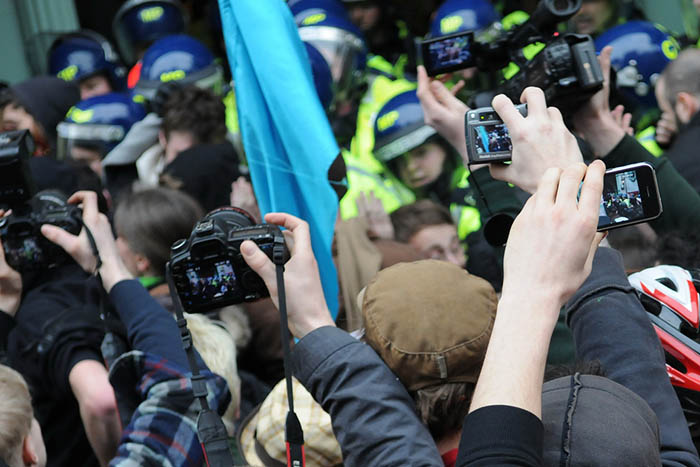
To highlight the most pressing concerns for press freedom in Europe in 2017, members Index’s outgoing youth board review the year gone by with some of our Mapping Media Freedom correspondents.
Youth board member Sophia Smith Galer, from the UK, spoke to Ilcho Cvetanoski, Mapping Media Freedom correspondent for Croatia, Montenegro, Bosnia and Macedonia.
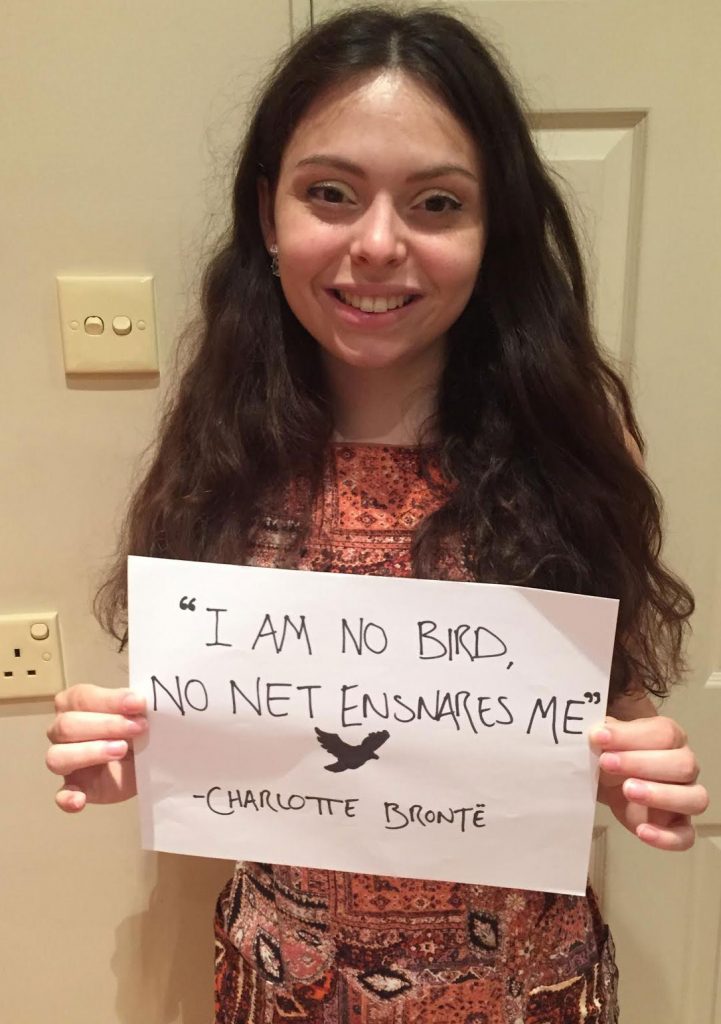 According to Cvetanoski, a lot has improved in the region over the last 15 years. The era during which journalists were targeted and killed is long passed, but the media is still dogged by censorship and political divides. In fact, journalists are regularly threatened and vilified by political elites, often denounced as foreign mercenaries, spies and traitors. Cvetanoski reports that this has led to “physical threats, the atmosphere of impunity, media ownership and also verbal attacks amongst the journalists themselves”. He notes that techniques pressuring journalists have changed from “blatant physical assaults to more subtle ones”.
According to Cvetanoski, a lot has improved in the region over the last 15 years. The era during which journalists were targeted and killed is long passed, but the media is still dogged by censorship and political divides. In fact, journalists are regularly threatened and vilified by political elites, often denounced as foreign mercenaries, spies and traitors. Cvetanoski reports that this has led to “physical threats, the atmosphere of impunity, media ownership and also verbal attacks amongst the journalists themselves”. He notes that techniques pressuring journalists have changed from “blatant physical assaults to more subtle ones”.
The breaking up of the former Yugoslavia has undoubtedly been a historical burden on Bosnia and Herzegovina and Croatia. Cvetanoski describes this legacy as having left “deep scars in every aspect of the people’s lives, including the lives and the work of journalists”. Media workers are still remembered as having once been tools of the state. Nowadays, the opposite is happening; they’re being criticised by political elites as enemies of the state simply for scrutinising politicians’ behaviour.
It’s unsurprising that this has left many journalists in the region politicised, undermining professionalism and trust in the media. Conservative politicians court sympathisers in the media so that they can manipulate the angle and content of stories that are run. The fact that journalist salaries are low and that the economic situation is poor overall further imperils journalistic integrity in the face of bribes.
If the situation remains as it is – with limited and highly controlled sources for financing the media, a poor political culture and low media literacy among citizens – then Cvetanoski holds little hope for the future of press freedom in the region. News consumers aren’t equipped with the literacy levels to distinguish between professional versus sensational journalism, nor are the sources of media funding transparent or appropriate. “In this deadlock democracy, the first victims are the citizens who lack quality information to make decisions.”
Mapping Media Freedom is helping to change this. Making journalists feel less alone and offering a space for them to report threats to press freedom ensures that the hope for a free press throughout Europe is kept alive.
The youth board’s Constantin Eckner, from Germany, spoke with Zoltán Sipos, the MMF correspondent for Hungary, Romania and Bulgaria.
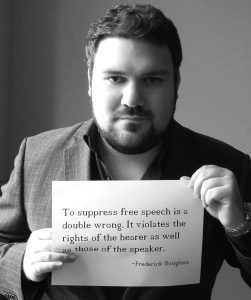 As MMF illustrates, journalists in all three countries have to deal with constant pressure from authorities and various degrees of censorship. In 2016, 42 incidents were reported in Hungary, 21 in Romania and 7 in Bulgaria.
As MMF illustrates, journalists in all three countries have to deal with constant pressure from authorities and various degrees of censorship. In 2016, 42 incidents were reported in Hungary, 21 in Romania and 7 in Bulgaria.
Index on Censorship’s regional correspondent Zoltán Sipos, who is also the founder and editor of Romania’s investigative outlet Átlátszó Erdély, points out that the Hungarian government and its allies within the country follow a sophisticated plan to neutralise critical media outlets. Several newspapers that struggled financially have been purchased by rich business people or media moguls in recent history. “Just like in regards to any other part of society, prime minister Viktor Orbán seeks for a centralisation of the media industry,” Sipos says.
Yet, instead of simply controlling the media, Orbán and the reigning party Fidesz intend to use established outlets and broadcasters to construct narratives in favour of their agendas. Only a handful of independent outlets remain in Hungary.
In November 2016, Class FM, Hungary’s most popular commercial radio channel, was taken off the air. The Media Council of Hungaryʼs National Media refused to renew its licence as Class FM was owned by Hungarian oligarch Lajos Simicska, whose outlets became very critical towards the government after a quarrel between him and Orbán.
The authorities in Romania and Bulgaria might not follow a well-wrought plan, but the situation for critical journalists is as severe. “The main problem is that most outlets can’t generate enough revenue from the market,” Sipos explains. “These outlets found themselves under constant pressure, as powerful business people are willing to purchase them and use them to promote their own political agendas.” Ultimately, this issue leads to the demise of independent reporting and weakens voices critical of the ruling parties and influential political players.
Sipos concludes that “these three countries have little to no tradition of independent journalism.” Although death threats towards, or even violence against journalists do not exist, the working conditions for critical reporters are difficult.
He recommends the investigative outlets Bivol.bg from Bulgaria, atlatszo.hu and Direkt36.hu from Hungary as well as RISE Project and Casa Jurnalistului from Romania as bastions of independent journalism. A few mainstream outlets that conduct critical reporting are 444.hu, index.hu, HotNews.ro and Digi24.
Layli Foroudi, a youth board member from the UK, interviewed Mitra Nazar, MMF correspondent for Serbia, Kosovo, Slovenia and the Netherlands.
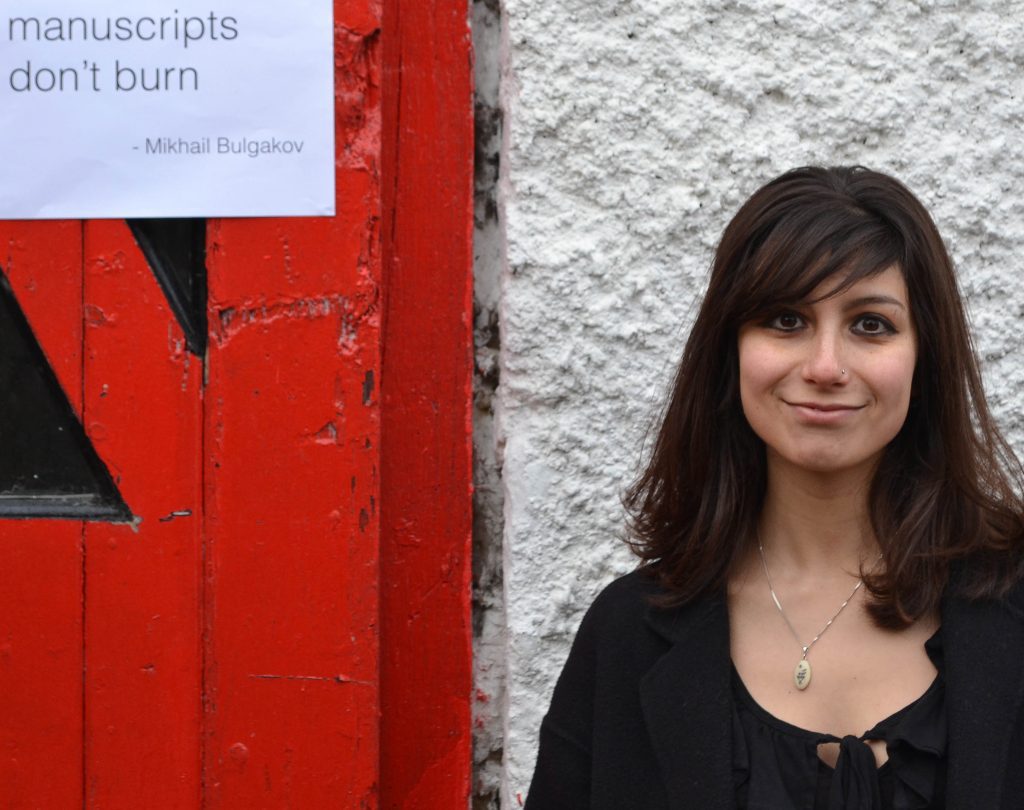 A Dutch national based in Belgrade, Serbia and the Netherlands are Nazar’s natural beats, and she also monitors media freedom in the nearby Balkan states of Slovenia and Kosovo.
A Dutch national based in Belgrade, Serbia and the Netherlands are Nazar’s natural beats, and she also monitors media freedom in the nearby Balkan states of Slovenia and Kosovo.
This year, Serbia has been the most intense of the four countries to cover. Serbian journalists have been subject to physical attacks and the government has maintained a smear campaign against independent media outlets in the country.
“This is a very organised campaign,” explains Nazar, “they’re being called foreign spies and foreign mercenaries.”
The “foreign spy” accusation has a real effect on the personal safety of journalists, whose pictures are often published alongside such accusations in the pro-government media. Nazar, who wrote a feature on the subject, says that this can cause such journalists to be branded as unpatriotic and anti-Serbian: “When the government accuses journalists of being “foreign spies”, it gives the impression that these independent journalists are against Serbia as a country.”
The ruling party of Serbia even went so far as to organise a touring exhibition called Uncensored Lies, where the work of independent media was parodied in an attempt to prove that the government does not censor, however, the exhibition also served to discredit these publications by calling the content “lies”.
“Can you imagine the ruling party organises an exhibition discrediting independent media,” says Nazar, shocked, “this is not indirect censorship, it is directly from the government.”
The media landscape in the Netherlands does not experience direct state-sponsored censorship, but there are other challenges. The Netherlands ranks 2nd in the 2016 RSF World Press Freedom Index, but Nazar has still reported a total of 49 incidents since the Mapping Media Freedom project started, from police aggression against journalists, to assaults on reporters during demonstrations, to broadcasters being denied access to public meetings.
For 2017, she is interested in looking into how the Dutch media deals with the rise of the far right and a growing anti-immigrant sentiment, especially in the upcoming elections which will see controversial far-right candidate Geert Wilders stand for office.
Last year, a Dutch tabloid De Telegraaf published an article about the arrival of refugees to the Netherlands with a sensational headline that generated a lot of debate in the Dutch media, which Nazar says is becoming increasingly politicised and polarised.
For Nazar, there is a line to be drawn with what legacy media outlets should and should not publish. “That line is representing and following the facts,” she says, “if you publish a headline that says there is a “migrant plague”, that is beyond facts – it is a political agenda.”
The youth board’s Ian Morse, from the USA, interviewed Vitalii Atanasov, the MMF correspondent for Ukraine.
In just the past two months in Ukraine, journalists have been assaulted, TV stations have been banned and governments on both sides of the country’s conflict with Russia have sought to limit public information and attack those who publicise.
Vitalii Atanasov is the correspondent who reported these incidents to the Mapping Media Freedom project. Drawing on sources from individual journalists to large NGOs, Atanasov monitors violations of media plurality and freedom in Ukraine for the project. To verify a story, he sometimes contacts media professionals directly, or crowdsources through social media, as he finds that all journalists publicise cases of violation of their rights, attacks, and incidents of violence.
“Some cases are complicated, and the information about them is very contradictory,” Atanasov tells Index. “So I’m trying to trace the background of the conflict that led to the violation of freedom of expression and media.”
Many of the violations that occur in Ukraine are either individual attacks on media workers by separatists in the east or Ukrainian officials attempting to control the media through regulation and licensing.
Of about a dozen and a half reports since he began working with MMF, Atanasov says many reports stick out, such as the “blatant” attempts of authorities to influence the work of major TV channels such as Inter and 1+1 channels. Most recently, Ukraine banned the independent Russian station Dozhd from broadcasting in Ukraine. While TV has recently been the target, problems with media freedom have come from almost everywhere.
“The sources of these threats can be very different,” Atanasov says, “for example, representatives of the authorities, the police, intelligence agencies, politicians, private businesses, third parties, criminals, and even ordinary citizens.”
Atanasov and MMF build off the work of other groups working in Ukraine, such as the Institute of Mass information, Human Rights Information Center, Detector Media, and Telekritika.ua.
Click on the bubbles to view reports or double-click to zoom in on specific regions. The full site can be accessed at https://mappingmediafreedom.org/
[/vc_column_text][/vc_column][/vc_row][vc_row][vc_column][vc_basic_grid post_type=”post” max_items=”4″ element_width=”6″ grid_id=”vc_gid:1486659943480-96bea7cd-9879-6″ taxonomies=”6514, 6564″][/vc_column][/vc_row]



 According to Cvetanoski, a lot has improved in the region over the last 15 years. The era during which journalists were targeted and killed is long passed, but the media is still dogged by censorship and political divides. In fact, journalists are regularly threatened and vilified by political elites, often denounced as foreign mercenaries, spies and traitors. Cvetanoski reports that this has led to “physical threats, the atmosphere of impunity, media ownership and also verbal attacks amongst the journalists themselves”. He notes that techniques pressuring journalists have changed from “blatant physical assaults to more subtle ones”.
According to Cvetanoski, a lot has improved in the region over the last 15 years. The era during which journalists were targeted and killed is long passed, but the media is still dogged by censorship and political divides. In fact, journalists are regularly threatened and vilified by political elites, often denounced as foreign mercenaries, spies and traitors. Cvetanoski reports that this has led to “physical threats, the atmosphere of impunity, media ownership and also verbal attacks amongst the journalists themselves”. He notes that techniques pressuring journalists have changed from “blatant physical assaults to more subtle ones”. As MMF illustrates, journalists in all three countries have to deal with constant pressure from authorities and various degrees of censorship. In 2016, 42 incidents were reported in Hungary, 21 in Romania and 7 in Bulgaria.
As MMF illustrates, journalists in all three countries have to deal with constant pressure from authorities and various degrees of censorship. In 2016, 42 incidents were reported in Hungary, 21 in Romania and 7 in Bulgaria. A Dutch national based in Belgrade, Serbia and the Netherlands are Nazar’s natural beats, and she also monitors media freedom in the nearby Balkan states of Slovenia and Kosovo.
A Dutch national based in Belgrade, Serbia and the Netherlands are Nazar’s natural beats, and she also monitors media freedom in the nearby Balkan states of Slovenia and Kosovo.